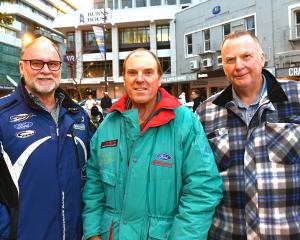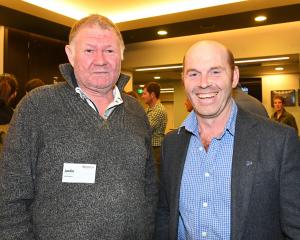International research links and the hosting of major international science conferences are boosting Dunedin's image as the wildlife capital of New Zealand, scientists say.
The University of Otago is hosting the Seventh Southern Connection Congress, a week-long multidisciplinary gathering involving more than 300 researchers from 35 countries, which starts today. The 20th Biennial Conference on the Biology of Marine Mammals will also be held in Dunedin this year and
is expected to attract 1200 people. It is believed to be only the second time the conference has been held outside North America.
Otago University botany head Prof Kath Dickinson, co-convener of the Southern Connection Congress, said that gathering would bring many people to Dunedin for the first time, including about 200 from abroad.
The natural science congress - being held in New Zealand for only the second time- focuses on ''Southern Lands and Southern Oceans: Life on the Edge?''Dunedin's hosting of such events highlighted the city's high standing for its wildlife.
There was also a further ''marketing opportunity'' to promote the greater Dunedin area as ''the biodiversity capital of New Zealand'', she said.
''We really have something to be very proud of.''
The recent finding of several lichen species and one fungus, not previously recorded by scientists, by Otago PhD researcher Lars Ludwig, near central Dunedin also highlighted the city's remarkably high plant biodiversity, she recently noted.
The presence of the congress also underscored the city's and Otago University's internationally respected research strengths in many disciplines including botany and geology, she said.
Associate Prof Liz Slooten, of Otago zoology department, who chairs the organising committee for the Biology of Marine Mammals conference, said many people would be ''really surprised'' to see so many overseas researchers visiting Dunedin when the five-day event began on December 9.
New Zealand was a marine mammal ''paradise'', being home to several species found nowhere else in the world, and Dunedin itself was a ''very special place'' for marine biodiversity.
Dunedin was New Zealand's wildlife capital-''of the major cities, we're it,'' she said.
Of the country's main cities, Dunedin had unrivalled easy access, after a short car ride, to a wide range of distinctive native wildlife, including the royal albatross and New Zealand sea lions, mammals found in no other country in the world.
And New Zealand's biodiversity was ''really valued'' by overseas scientists coming to the conference.
It sometimes took the arrival of people from overseas to remind local people ''just how special'' their area was, she said.












